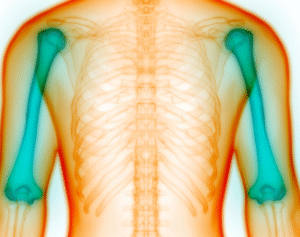Does Fibromyalgia Cause Hair Loss? Understanding the Overlooked Link
Fibromyalgia is a chronic condition often characterized by widespread pain, fatigue, and cognitive disturbances. While these hallmark symptoms are well known, many patients also report experiencing unexplained hair thinning or hair loss. This lesser-discussed concern leaves many wondering, does fibromyalgia cause hair loss?
The short answer is yes, fibromyalgia can contribute to hair loss, but the process is indirect and complex. It’s rarely caused by the condition itself alone. Instead, hair loss typically arises from a combination of physiological stress, hormonal imbalance, poor sleep, nutritional deficiencies, and side effects of medications often prescribed to fibromyalgia patients.
In this comprehensive article, we’ll delve deep into how fibromyalgia might affect hair health, what underlying factors could be at play, and what you can do to mitigate or reverse the impact.
Understanding Hair Loss: Not Always a Straightforward Process
Hair loss can occur in several forms. The most common types include:
- Telogen effluvium: Temporary shedding often triggered by stress or illness.
- Alopecia areata: Autoimmune-driven hair loss.
- Androgenic alopecia: Hormonal pattern hair loss.
For fibromyalgia patients, the hair loss usually falls under the category of telogen effluvium. This type of shedding happens when hair follicles prematurely enter the resting phase of the growth cycle, causing large amounts of hair to fall out a few months after the initial trigger.
How Fibromyalgia May Contribute to Hair Loss
1. Chronic Stress and Cortisol Imbalance
Fibromyalgia is both physically and emotionally draining. The constant presence of pain, fatigue, and sleep disruption keeps the body in a state of chronic stress. This stress leads to elevated levels of cortisol, a hormone that in excess can suppress normal hair growth.
Long-term cortisol imbalance can disrupt the hair’s natural cycle, pushing more follicles into the resting phase and causing noticeable thinning.
2. Sleep Disturbances Impacting Regeneration
Poor sleep quality is a core symptom of fibromyalgia. During deep sleep, the body performs crucial repair and regeneration functions, including those necessary for hair growth.
Without restorative sleep, the body has fewer resources to maintain healthy hair follicles. Over time, this can lead to weak, brittle hair that falls out more easily and regrows more slowly.
3. Nutritional Deficiencies and Digestive Issues
Fibromyalgia often goes hand-in-hand with gastrointestinal problems, such as irritable bowel syndrome (IBS), which can interfere with nutrient absorption. Deficiencies in iron, vitamin D, B-complex vitamins, and zinc are all known to cause hair loss.
If the body is not absorbing nutrients efficiently, even a healthy diet may not provide the essentials needed for strong hair growth.
4. Medication Side Effects
A wide range of medications used to manage fibromyalgia symptoms can list hair loss as a potential side effect. These include:
- Antidepressants (such as SSRIs and SNRIs)
- Anti-seizure medications often prescribed for nerve pain
- Beta-blockers for managing anxiety and sleep
- Muscle relaxants and painkillers
In some cases, hair loss begins a few weeks to months after starting a new medication and stops once the medication is discontinued or the dosage is adjusted.
5. Hormonal Imbalance and Autoimmune Overlap
Many people with fibromyalgia also experience hormonal imbalances, particularly involving the thyroid. Conditions like hypothyroidism or Hashimoto’s thyroiditis are frequently diagnosed alongside fibromyalgia and are known culprits of hair loss.
Additionally, fibromyalgia often coexists with autoimmune conditions like lupus or rheumatoid arthritis, which can directly affect hair follicles.
Signs of Fibromyalgia-Related Hair Loss
Hair loss caused by fibromyalgia is usually diffuse, meaning it affects the entire scalp rather than specific bald patches. You might notice:
- More hair on your pillow, shower drain, or brush
- A thinner ponytail or visible scalp
- Slower hair growth
- Increased shedding during flare-ups or high-stress periods
These signs may come and go, depending on how well your symptoms are managed.
Managing and Reducing Hair Loss from Fibromyalgia
Although hair loss related to fibromyalgia can be frustrating, it is often reversible once the underlying triggers are addressed. Here are practical strategies that can help:
1. Improve Sleep Hygiene
Creating a consistent sleep schedule, using blackout curtains, limiting caffeine, and winding down before bed can enhance sleep quality. Better sleep allows your body to heal and promotes healthy hair regeneration.
2. Manage Stress Levels
Incorporate stress-reduction techniques such as meditation, yoga, deep breathing, or even gentle hobbies. Lowering cortisol levels helps keep hair in the growing phase longer.
3. Review Your Medications
If you suspect that a medication might be contributing to your hair loss, speak with your healthcare provider. They may offer alternative options or adjust the dosage.
4. Nutritional Support
Ask your doctor to run tests for iron, vitamin D, and other key nutrients. A supplement regimen tailored to your deficiencies can help restore hair growth over time.
5. Use Gentle Hair Care Practices
Avoid harsh treatments like bleaching, heat styling, or tight hairstyles. Use gentle shampoos, avoid over-washing, and treat your hair and scalp with care to prevent unnecessary breakage.
When to See a Specialist
If your hair loss is severe, persistent, or accompanied by other symptoms like sudden weight changes, irregular periods, or fatigue beyond your usual levels, it may be time to see a dermatologist or endocrinologist.
These specialists can identify whether your hair loss is caused primarily by fibromyalgia or if another medical condition is involved.
Does Fibromyalgia Cause Hair Loss Permanently?
In most cases, the hair loss associated with fibromyalgia is temporary. Once stress levels are reduced, sleep is improved, and nutrient levels are corrected, hair often begins to regrow. However, if left unaddressed, chronic triggers can lead to prolonged shedding or even permanent thinning in susceptible individuals.
The key to reversing fibromyalgia-related hair loss is early intervention and a holistic approach that treats the whole body, not just the hair.
Frequently Asked Questions
1. Can fibromyalgia medications cause hair loss?
Yes, many medications used to treat fibromyalgia—especially antidepressants and anti-seizure drugs—list hair loss as a potential side effect. Discuss any changes with your doctor.
2. Does hair grow back after fibromyalgia-induced shedding?
In most cases, yes. Once the underlying trigger such as stress, poor sleep, or a nutritional deficiency is managed, hair often regrows within a few months.
3. How can I tell if my hair loss is due to fibromyalgia or another condition?
A healthcare provider can run blood tests to check for nutrient levels, hormone imbalances, or autoimmune conditions. A scalp biopsy may also be done in rare cases.
4. Are there natural remedies that help with fibromyalgia hair loss?
Natural options like biotin supplements, essential oils (such as rosemary), and scalp massage may support hair health, but they work best when paired with lifestyle changes.
5. Should I stop my medication if I notice hair loss?
Never stop medication without consulting your doctor. They can help determine if the drug is the cause and explore alternatives if needed.
6. Can reducing stress really help with hair loss in fibromyalgia?
Yes, chronic stress is a major factor in hair shedding. Reducing stress can significantly slow down or stop hair loss and promote regrowth.
Conclusion: Fibromyalgia and Hair Loss Are More Connected Than You Think
While hair loss is not among the classic symptoms of fibromyalgia, it is a very real and distressing issue for many people living with the condition. The good news is that in most cases, it’s manageable and reversible.
By addressing the root causes—stress, sleep, nutrition, and medication side effects—you can take meaningful steps to regain not only your hair but also a sense of control over your body.
Hair loss may be one of fibromyalgia’s silent symptoms, but with awareness and action, it doesn’t have to be permanent.



